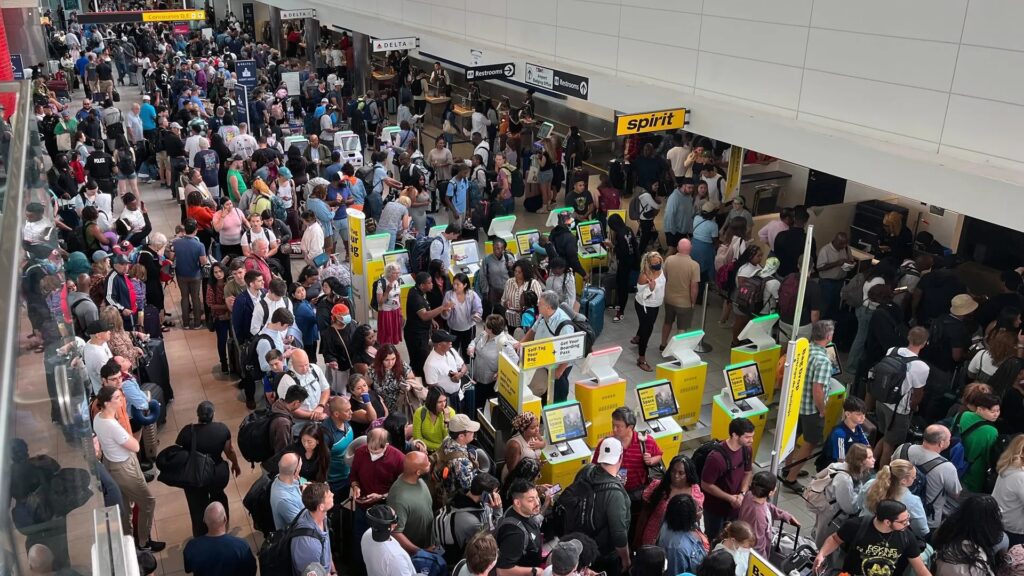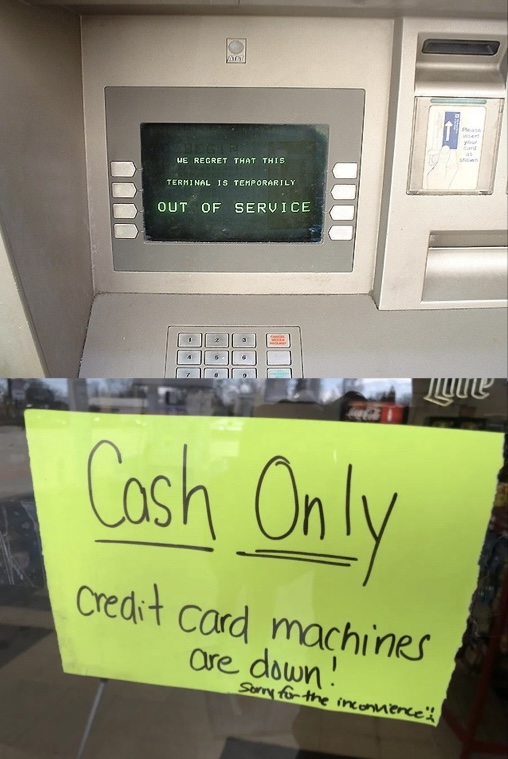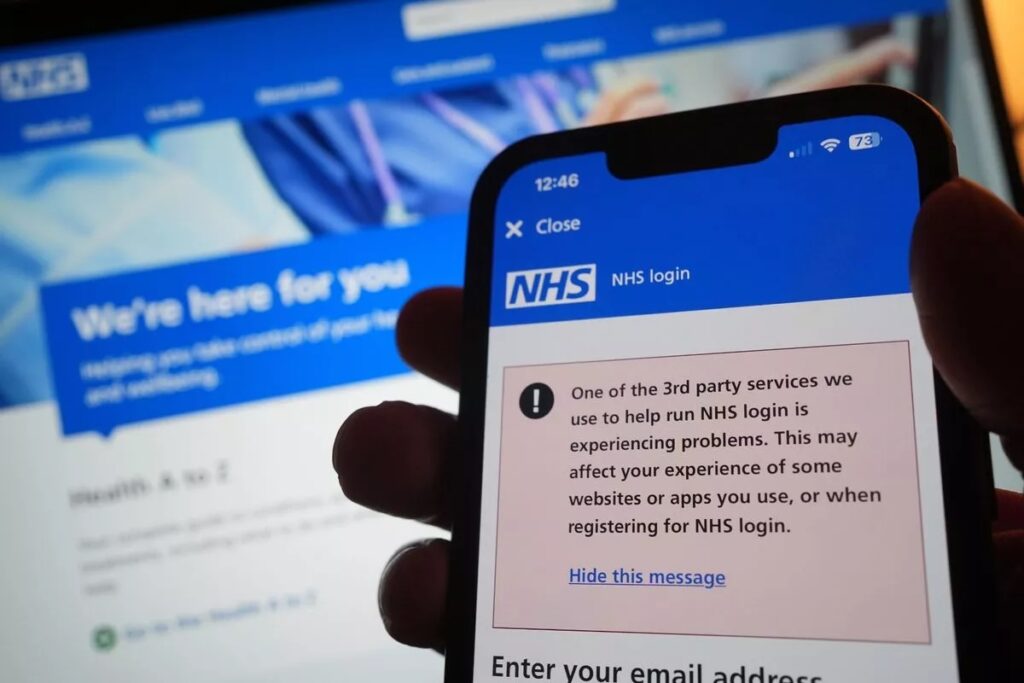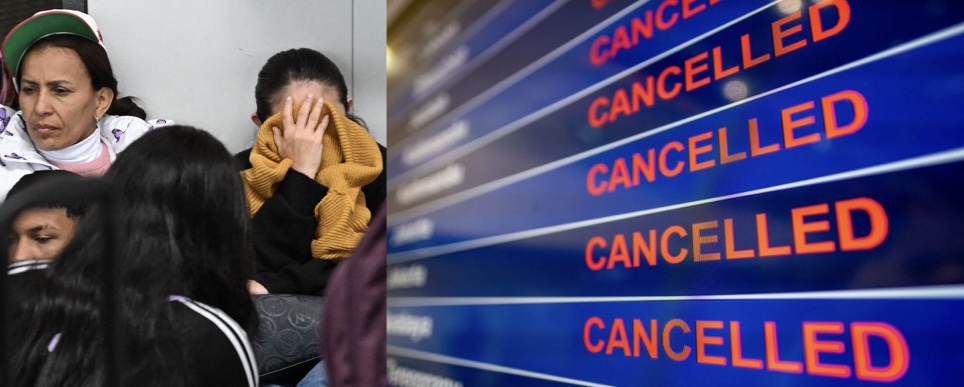Last week’s Microsoft-CrowdStrike IT outage has opened fears over the future safety of our online infrastructure.
Top News Today :
On Friday, the world experienced a technological disaster. Banking computers went down, ATMs and credit cards stopped working, air traffic control screens went blank, planes stopped flying, airline and train passengers were stranded, and everything from hospital to hotel to grocery store computer systems failed and froze all transactions. The catastrophe was caused by a major glitch at cybersecurity giant Microsoft-CrowdStrike, which happens to control much of the entire world’s online communication. It was the largest IT outage in history.
Now, people are asking why the globe relies on ONE single service to provide vital online technology and transactions to everybody — and how we can prevent a terrorist or rogue country from taking advantage of this vulnerability and creating a paralyzing cyberattack.

The scene last Friday was ugly. As airlines realized they couldn’t check passengers in and air traffic controllers concluded they couldn’t assure safety in the skies, a worldwide air stoppage was implemented. Planes that were already airborne were allowed to continue to their destinations. However, planes still on the ground were frozen in place, leaving some passengers stuck on the tarmac and airports overcome with a “9-11” level of chaos.
According to ABC News, The Microsoft-CrowdStrike IT outage stretched from the US Department of Justice to the London Stock Exchange to the Melbourne Airport in Australia — all vital entities for the globe to operate.

To put it into context, Microsoft is the American company founded by Bill Gates that designed the computer software and hardware systems most companies use today. CrowdStrike is an American cybersecurity technology firm that provides cloud workload protection, threat intelligence, and cyberattack response services.
Now, imagine you’ve just arrived at the airport to begin a week-long vacation in the Caribbean. You’ve got your luggage, multiple credit cards, and a couple of bucks on you ready for fun. Suddenly, a tech outage hits and, in the blink of an eye, almost all technology is rendered useless.
Your plane can’t fly, so you’re stuck inside the airport. Your credit cards have all stopped working, so you’re unable to buy yourself lunch. Your ATM card can’t access the network to withdraw cash. You attempt to summon an Uber to take you back home, but the app refuses to connect. Several TV networks have gone dark, so you can’t even check an airport television to find out what’s going on. You look inside your wallet or purse and discover you have $7.08 in cash on you, which won’t even buy a sandwich at the expensive airport vendors. You’re effectively stuck.
That’s the environment the Microsoft-Crowdstrike IT outage created, and it’s making a lot of people think.

CrowdStrike CEO George Kurtz said the outage was caused by “a defect found in a single content update for Windows hosts” and that Mac and Linux hosts were not affected. However, if most of the world could be shut down in an instant due to a software update, how easy would it be for some bad actor to hold the world hostage by recreating Friday’s horrific event?
In Austria, a leading doctors’ organization said the global IT outage exposed the vulnerability of health systems that are reliant on digital systems.
“Yesterday’s incidents underscore how important it is for hospitals to have analog backups” to safeguard patient care, Harald Mayer, vice president of the Austrian Chamber of Doctors, said in a statement.
The organization called on governments to impose higher standards in patient data protection and security and on health providers to train staff and put systems in place to manage crises.
Truer words were never spoken.
In fact, now that the world has become extremely comfortable and exclusively reliant on digital technology, it’s important for us to remind ourselves of the dangers of those decisions.

Keeping a small amount of cash (in small bills) inside your home, an old-fashioned transistor radio, and maybe even a landline telephone (if you still have one) are all smart ideas in the event the world is ever hit by a major IT outage again.
OK WASSUP! discusses the Top News Today:
Microsoft-CrowdStrike outage paralyzes the world.







Thank God I was not traveling that day. But my co worker was and she said it was a mess. It is strange everybody depends on Microsoft and Crowdstrike to handle important business. Maybe this will make us think of an alternative in case some attack comes.